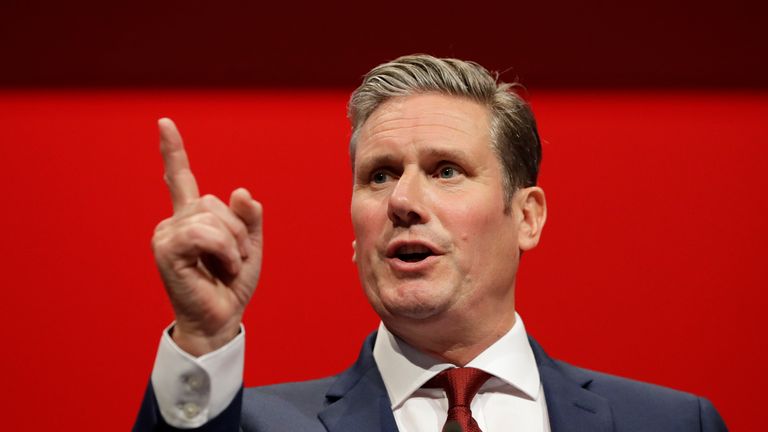
Speaking in the Commons over 20 years ago when I was an established MP. Much has changed since then. It had its weaknesses, but they are now generally even worse. I retired in 2005.
Parliament has changed considerably since I was an MP from 1987 to 2005. Three of the transforming factors have been -
(1)
The impact of new technology, with MPs now running face-book sites. I
was restricted to what was the then parliamentary avenues - mainly the
media, phone calls, surgeries, public and party meetings and
considerable letter writing. Any fees I received for work such as my
prize as the MP's weight-watcher of the year, went to charities - such
as War on Want
(2) There is the increase in the number of female MPs. Out of 650 MPs there
were only 41 women when I was first elected and there are 191 today.
Childbirth issues then led to the initial introduction of voting
arrangments by proxy. A technique that was recently extended when MPs
were being protected from Covid. In 1987 Labour only had 21 female MPs
out of 229 members. Aided to by all-women-short-lists, by the tme of the
2015 election Labour women MPs were in the majority by 99 to 80
males. A consequence of this change was that over the period of the
birth of MPs children, proxy voting was first introduced into parliament
for both women and men. But what was a proxy need has now been extended.
(3) In particular, the make-up of the Labour Party in parliamemt has changed. The collapse of industries such as coal mining has reduced significantly the proportion of Labour MPs who come from industrial and working class backgrounds. There when even four miners in my time whom I had taught on Sheffield University Industrial Day Release Courses. Another whom I studied with when at Ruskin College. And one I was first elected alongside, whom I knew from the Yorkshire Miners Office. Then there were earlier day-release students, such as Dennis Skinner.
There are different roles and payment systems which MPs can be subject to, mainly depending on whether they are front benchers or back benchers, and also whether they are on the Government or Opposition side of the House. Over a time many MPs will often move in and out of these categories. Except that when I was an MP for 18 years, I remained a back-bencher throughout that whole time. This has also been Jeremy Corbyn's position for 38 years, apart for his four and a half year spell as leader of the Labour Party.
Currently a back-bench MP is paid nearly £82,000 per year, with expenses for running an office and employing staff. Those living outside of London can claim allowances for rented accomodation in the capital of up to £23,000 a year so that they can make it readily to parliament. I rented a flat a bus journey from the Commons. Whilst those from London such as my successor Natascha Engel (who rented accomodation in Barrow Hill and then Dronfield) can nowadays claim up to £16, 000 annually. Jeremy living in his Constituency in London close to the Commons could and can make no such full claim, although smaller travel claims can be made by those travelling to the Commons from London's outskirts.
Numbers of MPs who are not front benchers, can also have additional employment outside of parliament. The case of Sir Geoffrey Cox is very prominent at the moment. He earned £900,000 last year as a lawyer. But whilst it is a feature which is stronger in the parliamentary Conservative Party, Labour is not free from this practice. When Starmer was first elected he was still involved in outside pay for a period before he became leader - for legal work. Then Dan Jarvis the MP for Barnsley has only just decided to pack in his role as the paid Mayor of South Yorkshire, which helped to almost double his MP's salary. In all almost a third of MPs now have second outside jobs.
Then there are openings for salary increases in the Commons itself - although Ministers are not allowed to take on any outside paid work. They receive salary increases instead. The Prime Minister gets an extra £75,000, plus his Downing Street accomodation. Cabinet Ministers get an extra £67,000. Ministers of State over £31,000 and Parliamentary Under Secretaries (such as our Lee Rowley at the Department of Business, Energy and Industry) an an extra £22, 475.
The Speaker receives £ 77,000 on top of his MPs salary, plus free accomodation in the Commons.
The extra parliamentary salary openings for MPs on the back benches is limited to an extra £16,422 for those taking on the roll of chair of a Select Committee. Ken Livingstone once wished to nominate me as Chair of the Northern Ireland Select Committee, but instead I accepted the unpaid post of Vice Chair. For the Chairmanship has extra heavy work , especially working with the staff of the Commitee. And I had other paliamentary work to do.
Sitting days in parliament last for roughly 30 weeks a year on so, normally running for five days a week. Breaks are provide for holiday periods, party conferences and a recess between the parliamentary years. Each fresh parliamentary year is set going with a Queen'a speech setting our her government's coming legislative programme.
Apart from work directly in parliament, MPs need to involve themselves in a numbers of related activities. So my interest in resolving the conflict situation on the island of Ireland led to me joining the Northern Ireland Select Committee and another organisation entitled the British-Irish Parliamentary Body. My costs on visits would be met by either parliament or by our hosts parliament. My wife would join me for numbers of these activities, but we privately met her costs.. On Northern Ireland I also chaired a voluntary (and unpaid) organisation called New Consensus, pursuing their concerns (as with other local, national and international issues) via parliamentary and other avenues.
I never gained parliamentary office, because I joined the Socialist Campaign Group and was seen as a left-wing rebel. But this presented me with no day to day problems in the parliamentary labour party when we were in
opposition from 1987 to 1994 and I was voting, speaking and acting
mainly against the Tories. But matters changed when Labour came to power
under Blair in May 1997. Later that year I joined in a major rebellion voting against the Labour Government with 54 other Labour MPs, over reduced child benefits for lone parents.
I was then called in by my rather gentle Regional Whip (Graham Allen) who was obiged to inform me that the next time I rebelled I would lose my membership of the Parliamentary Labour Party unless I informed him of my rebellious intentions beforehand. This would allow the Whips Office to know were they stood and (if necessary) prevent a loyal MP from having leave of absence so they could vote wth the Government - and cancel our my rebellion. I agreed to give advance warning, knowing that our Parliamemtary Party had enough votes to get their way anyway on most issues.
Dispite a record of regular rebellions, I was never taken to task by Graham again. Once I sent him a detailed letter to jusify my rebellion and he told me that I had won that weeks Booker Prize ! But then often I only placed my rebellious information on the Commons letter board for him as I went in to vote against the Labour Government - too late for him to cover my move. But he never took me to task, probably working out in advance what I would be doing.
The only other direct problem I faced from the Whips was to be dragged into their main
office to be told off over a a specific rebellion. I
pointed our that the issue concerned a parliamentary amemdment submitted in my own name. How did they
think I would vote? I then stormed out and heard nothing further. But it
would not have added to my popularity with the leadership.
The question is how do we get dedicated MPs devoting their time and energy to issues such as saving the planet, overcoming Covid on an national and international basis, tackling poverty and ending conflicts and expliotation. Surely the Parliamentary Party of Keir Hardie, Clem Atlee, Nye Bevan and company should now direct itself to what are the crying issues of our time.
(0.51 seconds)
.




